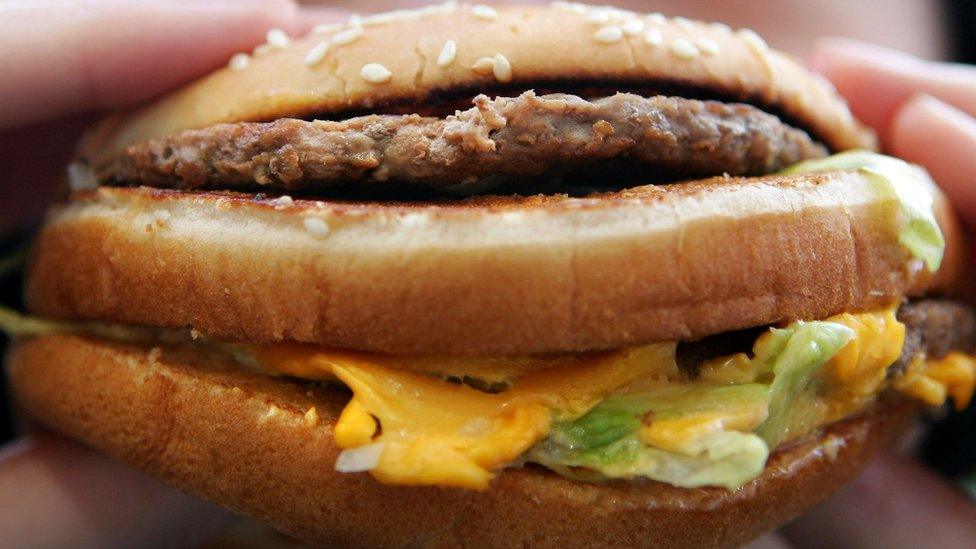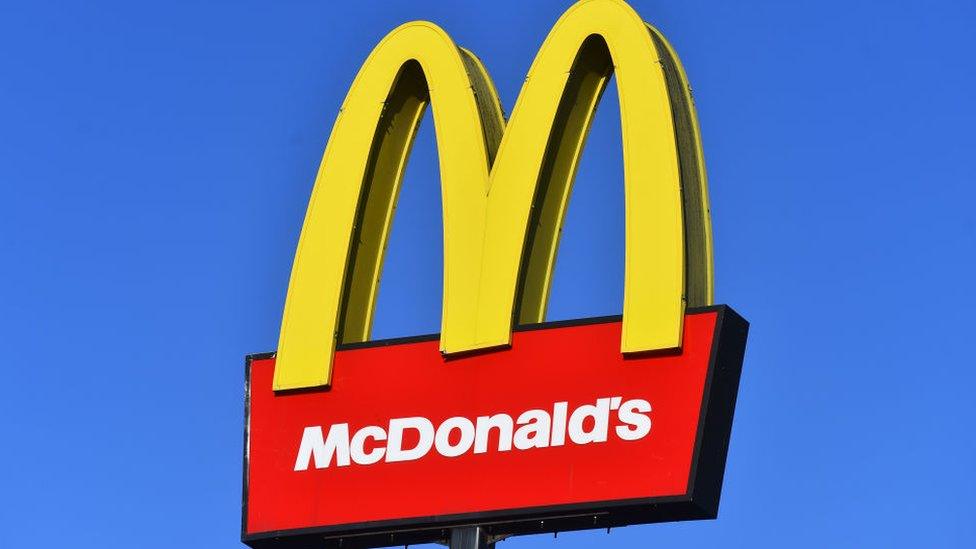McDonald's and Wendy's sued for burger ads that mislead on size
- Published

A lawsuit says McDonald's and Wendy's burgers are smaller than advertised
A New York man has a beef to pick with McDonald's and Wendy's: misleading adverts he says make their burgers look much bigger than they actually are.
In a proposed class-action lawsuit, he accuses the fast food giants of unfair and deceptive trade practices.
He is seeking $50m (£40.3m) in damages for himself and other similarly duped customers.
The chains did not comment immediately on the case, which compiles many complaints from social media.
Rival Burger King was hit with a similar lawsuit in Florida in March, by the same law firms representing New Yorker Justin Chimienti.
While Burger King has yet to respond in court, an amended complaint shows that more unhappy customers have signed onto the suit.
The companies' adverts are "unfair and financially damaging consumers as they are receiving food that is much lower in value than what is being promised", the complaints say.
The "actions are especially concerning now that inflation, food, and meat prices are very high and many consumers, especially lower income consumers, are struggling financially," they add.
The lawsuit against McDonald's and Wendy's says the burgers in the marketing are at least 15% larger than they are in real life. It includes some of the reactions on social media calling out the firms for the discrepancy.
"It's looking a little sad... not like the picture," one YouTube reviewer, cited in the lawsuit, said of Wendy's Bourbon Bacon Cheeseburger.
"It's going to be a small burger folks. I am just telling you straight up what to expect so you won't be disappointed like me," said another.
Those kinds of comments are unlikely to be enough to win a case in US court, according to Mark Bartholomew, law professor at the University of Buffalo in New York.
He said a court would be looking for proof that customers were actually fooled and that the adverts affected purchasing decisions.
"Both of those are an uphill battle for the plaintiff to prove," he said, noting that the fast food companies could likely argue that the public expects some exaggeration in a marketing campaign.
"My guess is that what they really want is a settlement and this will never go to a full blown trial."
In the UK, regulators banned a Burger King ad in 2010, upholding complaints that the chain's chicken sandwiches were much smaller than advertised.
But it's relatively unusual to see this kind of case in the US, where many advertising disputes are between competitors and resolved quietly through an industry body, said Deborah Gerhardt, law professor at the University of North Carolina-Chapel Hill.
"A lot of the disputes never even come to light," she added.
Related topics
- Published26 January 2022

- Published7 May 2022
